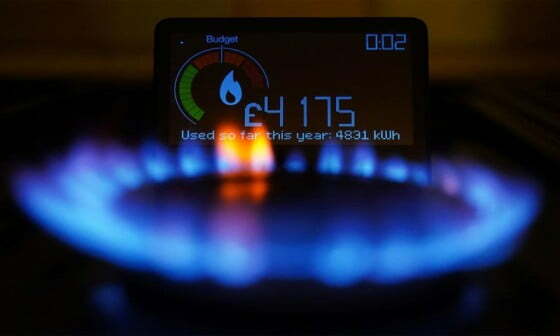Discover how Ofgem’s £151 Energy Bill Savings, alongside price cap adjustments, are shaping the energy landscape. Explore insights into future energy trends and considerations for optimizing your household expenses.

READ THIS: Energy Price Cap Forecast: Potential £150 Annual Savings Amidst Caution and Complexities
As the cost of living continues to be a concern for households, the regulatory authority Ofgem brings a glimmer of relief with the announcement of anticipated savings on energy bills. Starting from October, each household is poised to save £151 annually, despite the persistently high projections for gas and electricity expenses in the coming months and years. Ofgem’s forthcoming price cap adjustment, reducing the cap from £2,074 to £1,923 per year for the average household, marks a significant milestone by dropping below the £2,000 threshold for the first time since April 2022. However, this heralded relief prompts a closer examination of the intricate dynamics at play and the potential implications for consumers.
The Ofgem Price Cap Unveiled
Ofgem‘s role in ensuring fair energy pricing takes center stage as it introduces the recalibrated price cap, effective October 2023. This cap establishes the maximum charge energy firms can levy on customers with variable-rate tariffs, especially those who pay via direct debit. With fixed-rate deals largely vanishing from the market, a growing number of households are embracing price-capped arrangements. Almost all energy firm tariffs conform to the upper limit stipulated by this cap.
Ofgem’s £151 Energy Bill Savings: A Glimpse of Cost Transition from October 1
The timeline of cost transformation is slated to begin on October 1. Currently, households with variable-rate tariffs are expected to pay £2,074 annually or £172 monthly, courtesy of the Ofgem price cap. However, the imminent change will see this average bill plummet to £1,923 per year or £160.25 per month. The catalyst behind this reduction is attributed to the declining wholesale energy prices, a factor which companies like British Gas factor into their pricing strategies.

READ THIS: Flawed Energy Bill Support: 4 in 5 Homes Miss £300M Aid
Understanding the Variables in Energy Charges
While the price cap effectively constrains the maximum charges for electricity or gas units consumed, individual usage patterns play a pivotal role in determining the final bill. Adding a layer of complexity, the standing charge—a figure influenced by meter type, payment method, and geographical location—exerts its influence on the total amount paid. Ofgem’s confirmation of the standing charge’s consistency is noteworthy: the charge for electricity remains at 53p per day, while gas sees a modest 1p increase to 30p starting October 1.
Calculating ‘Average’ Energy Consumption
The concept of ‘average’ energy consumption undergoes a transformation as Ofgem revises its assumptions. Previously estimated during the pandemic, the typical annual electricity consumption of a household was approximated at 2,900 kWh, alongside 12,500 kWh for gas. However, commencing October 1, 2023, these calculations will be revised to a more accurate representation: 2,700 kWh for electricity and 11,500 kWh for gas. This realignment aims to reflect the evolving consumption patterns more faithfully.
Ofgem’s £151 Energy Bill Savings: The Price Cap’s Fluid Cadence
The Ofgem price cap’s rhythm involves four adjustments each year. Following the anticipated changes in October 2023, the next recalibration is scheduled for January 2024. Notably, homes with energy expenditures exceeding £3,000 annually are protected by the Government’s Energy Price Guarantee, effectively capping their bills.
Peering into the Future of the Price Cap
As Ofgem refrains from predictions, analysts at Cornwall Insight step in. The firm’s history of accurately forecasting price cap movements lends weight to their insights. Based on Ofgem’s existing energy consumption assumptions, Cornwall Insight predicts energy bills to climb to £2,082 in January 2024, drop to £2,014 by April, and further descend to £1,965 in the subsequent October. When utilizing the new assumptions, projected energy bills are expected to fall to £1,823 in October 2023, then rise to £1,979 in January, drop to £1,915 in April, and ultimately dip to £1,867 by October 2024—assuming Cornwall Insight’s forecasts prove accurate.
The Contemplation of Price Cap Evolution
While the price cap undeniably offers respite, concerns about its broad applicability are echoed, including by Ofgem itself. The Chief Executive of Ofgem, Jonathan Brearley, has advocated for reforms due to the cap’s perceived limitations. Despite this, the Department for Energy Security and Net Zero maintains its commitment to ensuring consumer-friendly energy markets.
Seeking Affordable Energy Solutions
The absence of economical fixed-rate deals amid surging energy costs has led to a consumer reliance on capped rates. While energy companies are gradually reintroducing fixed-rate options, these often closely mirror the capped rates. Consumers are advised to approach fixed-rate deals judiciously, taking their individual needs and priorities into account.
Glimpsing the Long-Term Energy Landscape
Projections about energy price normalization diverge, with Cornwall Insight envisioning potential restoration by the end of the decade. In contrast, experts from Auxilione anticipate energy bills remaining above £1,000 annually for the foreseeable future.
Conclusion
In the ever-changing sphere of energy costs, Ofgem’s measures offer a delicate equilibrium between financial alleviation and market dynamics. As energy expenses continue to exhibit volatility, well-informed choices remain imperative for households navigating their economic stability.
After reading the article “Unveiling Ofgem’s £151 Energy Bill Savings: Navigating Price Cap Adjustments and Future Prospects”, please read below article.
READ MORE: Save on Water Bills: New Relief Scheme for Welsh Households